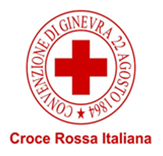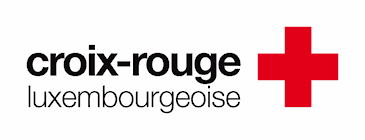| Mapping ofNational Society Activities | HIV and AIDS | Tuberculosis |
| Prevention | HIV prevention among young people is based on peer to peer education. Target group are the students of schools, colleges, universities; teenagers from youth colonies. Informational sessions also conducted for parents and teachers in schools. In a separate component can be selected prevention activities for adult population in rural area. |
RRC activities aimed on increasing early detection of TB, correct and timely diagnosis of TB, including drug susceptibility testing (DST), patient adherence to treatment, and community involvement in TB control efforts. The overall work include: 1. To increase awareness of general population, TB patients, their family members and at-risk groups. 2. To develop effective and sustainable TB control model and reduce the number of TB treatment defaults. 3. To improve integration of civil and penal TB services and continuity of treatment for TB patients after release. |
| Counseling | Informational Counseling Centers (ICC) provides the services for PLHIV and people close to them. The services include psychological, social and legal assistance, peer counseling, support and self support groups. Mostly the services are deployed in ICC, working on the base of Irkutsk regional branch of RRC. they include Hot line, Center of early development for children born to HIV positive mothers. | Psychosocial counseling is provided by professional psychologists of the RRC as well as trained and experienced volunteers. Psychosocial support is used to improve treatment compliance. Counseling also conducted in TB patients clubs. |
| Care | Visiting nurses provide direct control over treatment and home based care for TB patients. | |
| Advocacy | Good base is developed to establish effective dialog with Federal authorities and media for advocacy on TB and MDR TB issues: improvement of existing TB legislation, state financing and methodological approaches according to the internationally recognized standards. | |
| Partners/ Networking | RRC regional branches are working in close cooperation with departments of Health, Educational departments and AIDS centers. | The mechanism of comprehensive partnership is developed with the Federal authorities such as: State Duma (Parliament) of the Russian Federation, Ministry of Health and Social Development, Federal Service for Sentence Execution of the Ministry of Justice, regional governments; different players, such as: WHO, High Level Working Group on TB and other interagency coordinating mechanisms, MOHSD, Federal TB research Institutes. |
| Best practices | In order to accumulate and promote the experience, gained during the implementation of HIV programs, the Recourse Center of RRC was created. It’s methodology based on the results of “Expanded Care & Support for People Affected by HIV in the city of Irkutsk” program and examples of program replication. Best practices of the program were replicated on the territory of Russia (2006 – 2007) and then in Ukraine, Kazakhstan, Kirgizstan, Belarus, Armenia. Today, Technical support group of the Resource Center trains staff of the projects, working in the frame of “Regional Health Initiative in Eurasia” supported by American Red Cross; develop methodological materials that can be used in organization of different kinds of HIV prevention and care activities. |
The integrated system of social support for TB patients is included in the list of mandatory activities against TB and was approved by MoH in 2011. In 6 regions of Russian Federation TB controlled treatment is co-financed by local governments. 2 TB centers are working on the base of RRC regional branches: TB School for nurses and para-medical personnel in Belgorod; Center on Social Support in Khakassia. |
| (information which, in your opinion, is also important) |
RRC is a member of High Level group working with TB problem. The group was created by MoH and WHO in RF. RRC provided methodological support in the questions of case management for TB patients under controlled treatment for National Societies of Rumania, Armenia, Belarus, Serbia, Macedonia, Finland, Tajikistan, Kirgizstan, Azerbaijan and Turkmenistan. |
|
| Contact person(s) | Coordinator Margarita Lykova | Coordinator Veronica Agapova |
Valentina’s success story
It was one of those cold January mornings when somebody knocked on the door of the Russian Red Cross office in Khabarovsk. A very thin and shy girl was at the doorstep. She handed over a referral letter from the local TB service asking to include her in the target group of the Red Cross TB programme. She needed social help.
This young woman’s name was Valentina. She and her family had moved to Khabarovsk from Okhotsk because neither she nor her husband could find a job there. The couple had hoped that by moving to the capital of the Russian Far East that their financial situation would improve, that both would find prestigious, well-paid jobs and that their two small daughters would go to a good school.
But reality was tough on the family. Once in Khabarovsk, Valentina’s husband could hardly find work and Valentina, even though she was a certified nurse, couldn’t find any at all. They could only afford to rent a shabby apartment in the outskirts of the city that lacked even the most basic utilities. Valentina’s husband’s salary barely covered their rent and food for the children.
One evening, several months after moving to Khabarovsk, Valentina started to feel unwell. The next morning she was unable to get out of bed. Valentina thought she simply had a cold and decided not to go to the doctor. She was afraid the doctor would prescribe medication her family would not be able to afford. Valentina stayed in bed for several days and hoped for the best. During the following days her condition deteriorated, and she could no longer avoid going to the doctor. Her diagnosis was a shock for her – she had tuberculosis.
Valentina was immediately hospitalised. The state of her lungs was very complicated and she had to undergo surgery. Valentina spent many months in hospital before being referred for outpatient treatment at the Red Cross programme.
Once Valentina began treatment, she was asked by the Red Cross coordinator what she normally ate. Valentina looked down and said she was seldom hungry, and that her priority was feeding the kids and her husband so that he had the energy to go to work. Valentina was given daily food aid as a reward for taking her medicines and received clothing for herself and her girls. She also worked with a psychologist who helped her to build self-respect, to gain self-confidence and to hope that her treatment would be successful. Red Cross workers helped to send Valentina’s daughters to kindergarten and assisted her husband in coming back to his job after he was fired on the grounds of his wife’s disease.
During treatment Valentina was a good and responsible patient; she always took her medicines, never missing a single day. She offered her support to the Red Cross staff and helped the visiting nurse to pack protein parcels, delivered them to the houses of lonely disabled patients and took care of the programme’s paperwork.
Valentina fully recovered after her treatment ended, and she stopped being a member of the programme’s target group. When she discovered that one of the DOTS nurses wanted to quit her job due to her own health complications, Valentina offered herself as her replacement. She was properly trained by the programme’s health coordinator and was given the job as a visiting nurse.
Valentina now oversees DOTS for 45 patients, hands out the Red Cross social aid and assists those who interrupt their treatment. Red Cross beneficiaries note that Valentina is a very considerate, understanding and responsible nurse. They say she is always there for them, always ready to help, always glad to solve problems related to treatment and to answer questions about it. Valentina knows how to approach ‘difficult’ patients who repeatedly interrupt their treatment, and she now uses her own story to encourage patients to continue treatment and to believe in their full recovery.

Valentina Chernyshova, a visiting nurse at Kabarovsk Krai branch of the RRC, centre of directly observed therapy (DOT) for the treatment of tuberculosis

Resource centre on HIV/AIDS in Irkutsk
Brief information about activities of
Technical Support Group, Resource Center on HIV
Background:
Since 2003, on the base of Irkutsk regional branch, Russian Red Cross began the implementation of the program of palliative care for people living with HIV. American Red Cross has been actively supporting the program.
Experience gained from the implementation of the «Care and Support to People Living with HIV/AIDS in Irkutsk” program served as the basis for replicating best practices, first in several regions of Russia (since 2006), and then in Ukraine, Kazakhstan, Kyrgyzstan, Belarus, and Armenia.
In July 2011, the Russian Red Cross approved the “Statute of Resource Center on HIV/AIDS (RRC RC)”. The Resource Center was defined as a mechanism of technical and methodological support for RRC regional branches and National Societies in this document.
The main goal of Resource center is to build and strengthen the capacity of RRC regional branches and RC/RC National Societies in Eurasia.
To achieve the RRC RC goals, a Technical Support Group was created in Irkutsk, which conducts trainings and provide methodological support both in Russia and other NSs, where Regional Health Initiative projects are implemented.

Brief report:
In the period 2011 – 2012 the work of Technical support group was aimed on training the staff and volunteers of RC/RC branches, development of technical documentation and methodological materials, counseling on proposal writing issues and project management. In sum, the specialists of RC conducted 20 consultations, 8 trainings and 1 working meeting: 2 trainings on HIV prevention and Healthy Life Style for RRC staff and volunteers; two trainings on planning project process for Turkmen Red Crescent and Belarus Red Cross Society; two trainings for trainers and one on PLHIV social support for Ukraine Red Cross; one training for trainers for Kazakhstan Red Crescent. The format of trainings involves consideration of topics on project planning, management, M&E, training of peer instructors in HIV prevention, case management and palliative care. Nearly 160 people from different National Societies were trained. Now the specialists of Resource Center are developing complete packages to accompany the trainings. The packages will include programs, presentations, information blocks, descriptions of exercises. At the end of December, 2012 its planned to complete final version of guidelines on palliative care for PLHIV and training package for peer instructors on HIV prevention.
The specialists of Resource Center took part in development and adoption of small grants competition system, unified logical framework, unified monitoring and evaluations system for the program “Regional Health Initiative in Eurasia”. The indicators of M&E system also include the indicators of Global Alliance of National Societies against HIV.
Strategic areas of RRC RC activities.
In the new working period (till July, 2013) the work of Resource center will be aimed on support the regional branches in improvement their M&E system, establishing informational exchange, strengthening the cadre of trainers, creating the methodological base.
In the frame of international partnership RRC Resource Center is aimed to assist National Societies for creating resource centers of socially significant diseases on their own base.
GALLERY
To learn more (about RRC RC reports and working plan):
Technical Support Group hivirk@mail.ru
Irkutsk regional branch of RRCwww.redcross-irkutsk.org
Contacts
| The Russian Red Cross Society | |||
| ERNA Contact Information | Head | Head | ERNA Contact Person |
| Name Surname | Mrs Raisa LUKUTSOVA | Mr Alexandr POZDNYAKOV | Mrs. Veronika Agapova |
| Role in the National Society | President | Assistant to the President | TB Programme Coordinator |
| E-mails | s_kobets@mail.ru | tb@redcross.ru | |
| Phone numbers | (7) (499) 126 75 71 / 126 67 70 (International Department) | (7) (499) 126 75 71 / 126 67 70 (International Department) | 7 499 126 46 20 |
| Skype | |||
| Fax | 7 499 126 42 66 | ||
| Post address | Cheryomushkinsky Proezd 5 Moscow |
||








